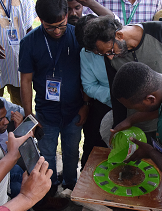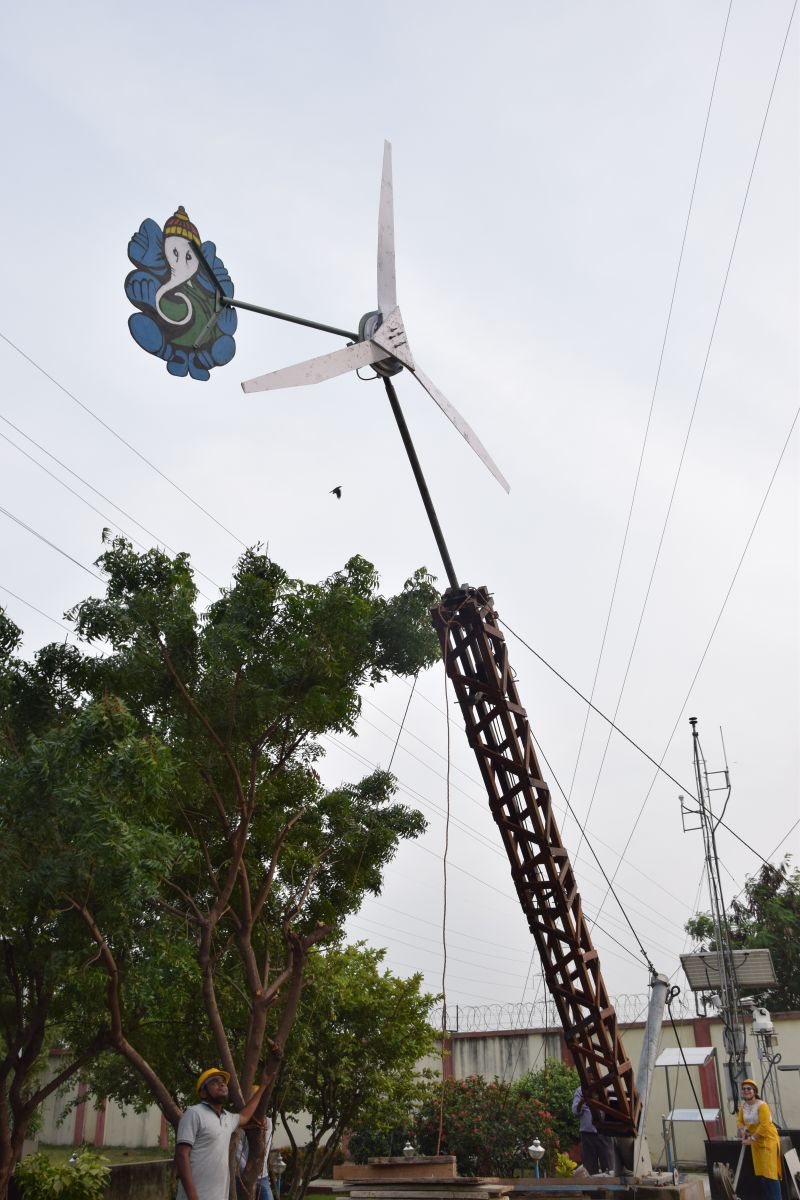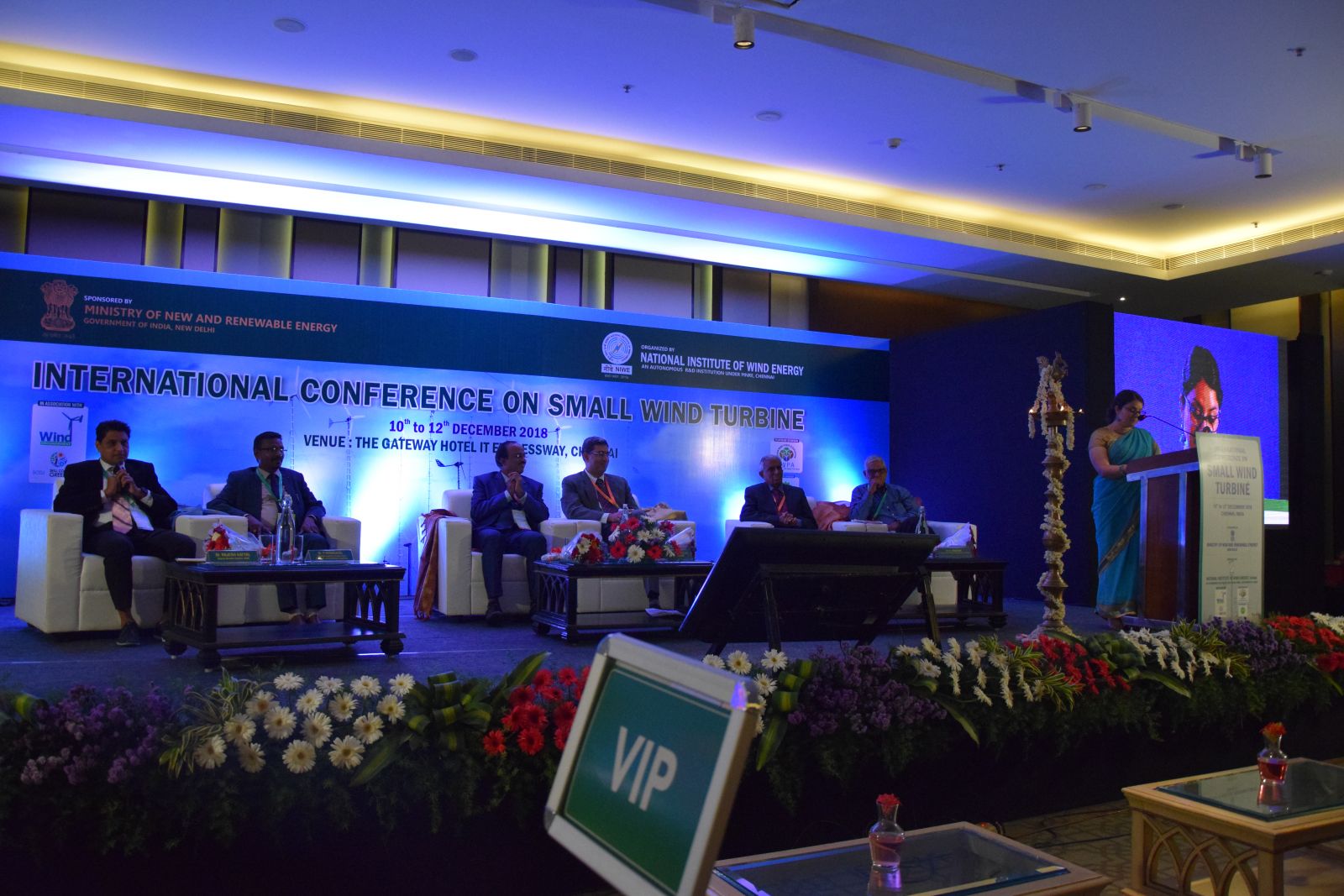
We are delighted to showcase this blog by Alfie Alsop, which summarises his experiences of participating in the Wind Empowerment Conference 2018, which was held in December 2018 in Chennai, India. Alfie is a PhD research student at the University of Strathclyde, UK, whose research uses Market Assessments as a tool for highlighting where small-scale wind power will be an effective and sustainable solution for energy generation in the Global South.
Wind Empowerment (WE) is a global network of small wind practitioners and stakeholders, dedicated to the advocacy and implementation of small scale wind turbines in appropriate contexts throughout the developing world. Every two years we hold a conference for our members (and other curious individuals) to share our experiences and lessons from our respective projects. Following events in Senegal, Greece and Argentina, in December 2018 we held our fourth conference in Chennai, India.
What made this event different was the fact that, in collaboration with NIWE (National Institute of Wind Energy), we included a series of practical hands-on workshops in the week before the conference. NIWE had been running an international lecture course on small wind power, with more than 60 participants from over 20 countries, so made perfect sense for us to combine efforts and invite all of these participants to take part in our workshop and conference events!
The workshop event saw experts in the local manufacture of small wind turbines come together from France, Greece, Nepal, Argentina, India, Sri Lanka, USA, Germany, Austria, Brazil and UK to teach participants how to build a Piggott design Locally Manufactured Wind Turbine. As well as the core training of turbine construction, we carried out trainings for different techniques for manufacturing fibreglass blades, wooden tower structures and water pumping technologies as well as the design and assembly of open source dataloggers, power converters and charge controllers for off-grid wind turbine systems.
.png)
On the third day of the workshops the heavens opened, and despite living in the UK all of my life I’ve never seen rain quite like it. Participants and trainers alike were dashing between cover (without much success). Some of us were worried by the amount of rain given that the NIWE campus sits amidst a large marshland, but fortunately it didn’t turn into a repeat of the 2015 floods and we were able to get back to work that afternoon.
The workshop was an amazing opportunity to teach what was, in all likelihood, the biggest (and most intensive) course of its kind to date. All of our trainers and participants did an incredible job, which culminated in the successful installation of our 1kW turbine at the end of the week! Note the tasteful Ganesh on the tail of the turbine!
Amongst the participants in the workshop were two rural development engineers, Prasad Kulkarni and Bhushan Patil, from Gram Oorja. Their attendance only came about through my chance meeting between Gram Oorja’s Director, Anshuman Lath during the LCEDN conference at Loughborough University, in early 2018. We’ve kept in touch, and when the details of the conference event were confirmed we invited Gram Oorja along. Since the conference, WE Coordinator Jessica Rivas has visited Gram Oorja in Pune, India, to follow up and strengthen links for future collaboration. This is the perfect example of how networks like LCEDN can connect people, and I’m excited for what the future holds!
After a few days rest (during which some of the team visited Auroville, home to one of the event organisers, Jorge Ayarza) we began the conference. The first three days consisted of panel discussion sessions with members from Wind Empowerment, NIWE and other Indian experts presenting and discussing on topics from Certification and Standards requirements to the Social Impacts of Small Wind Installations. We are delighted to have had the opportunity to address so many people; stakeholders, practitioners and rural development actors both from India and overseas. It’s a strong first step in establishing a national network within India, all we need to do now is ensure that the momentum is maintained and institutional links strengthened.
We are enormously grateful to the WISIONS Initiative of the Wuppertal Institut für Klima for their support for this event, it is only with their assistance that we managed to bring together small wind experts from 18 different countries to teach the workshop courses, sit on panels at the conference and share their experiences of small wind in their own local contexts. We must also express our sincere thanks to the staff of NIWE, for hosting the event and working with us to make the most of a fantastic opportunity.
A huge amount of ideas were generated between members are participants during the conference, and the wheels are beginning to turn on a number of new projects. We’re all looking forward to the next conference, and to see the progress that these projects have made.
If you’re working with small scale wind already, looking to start working with the technology, or if you’re a rural electrification practitioner thinking about in getting involved wind small you are more than welcome to join the Wind Empowerment network, either as an individual or on behalf of your organisation. The membership form is located here.


